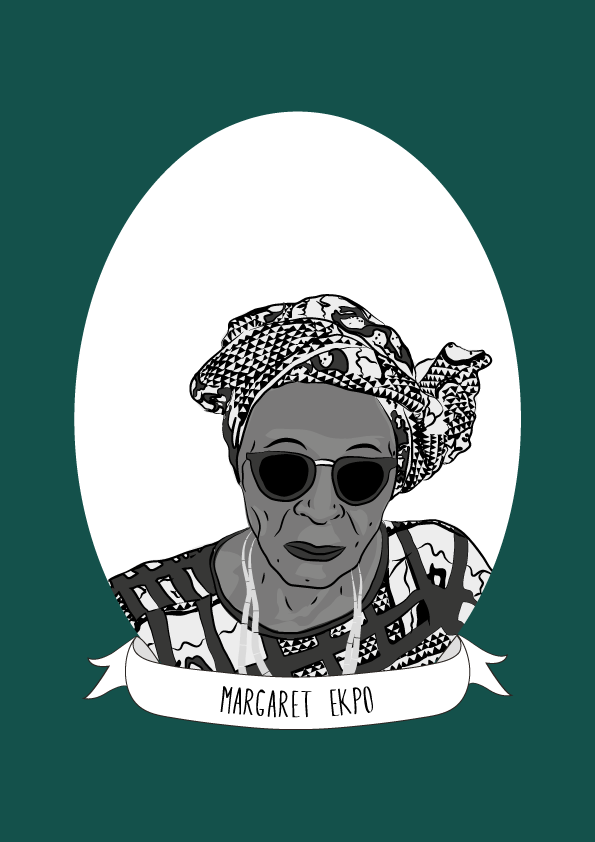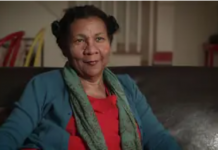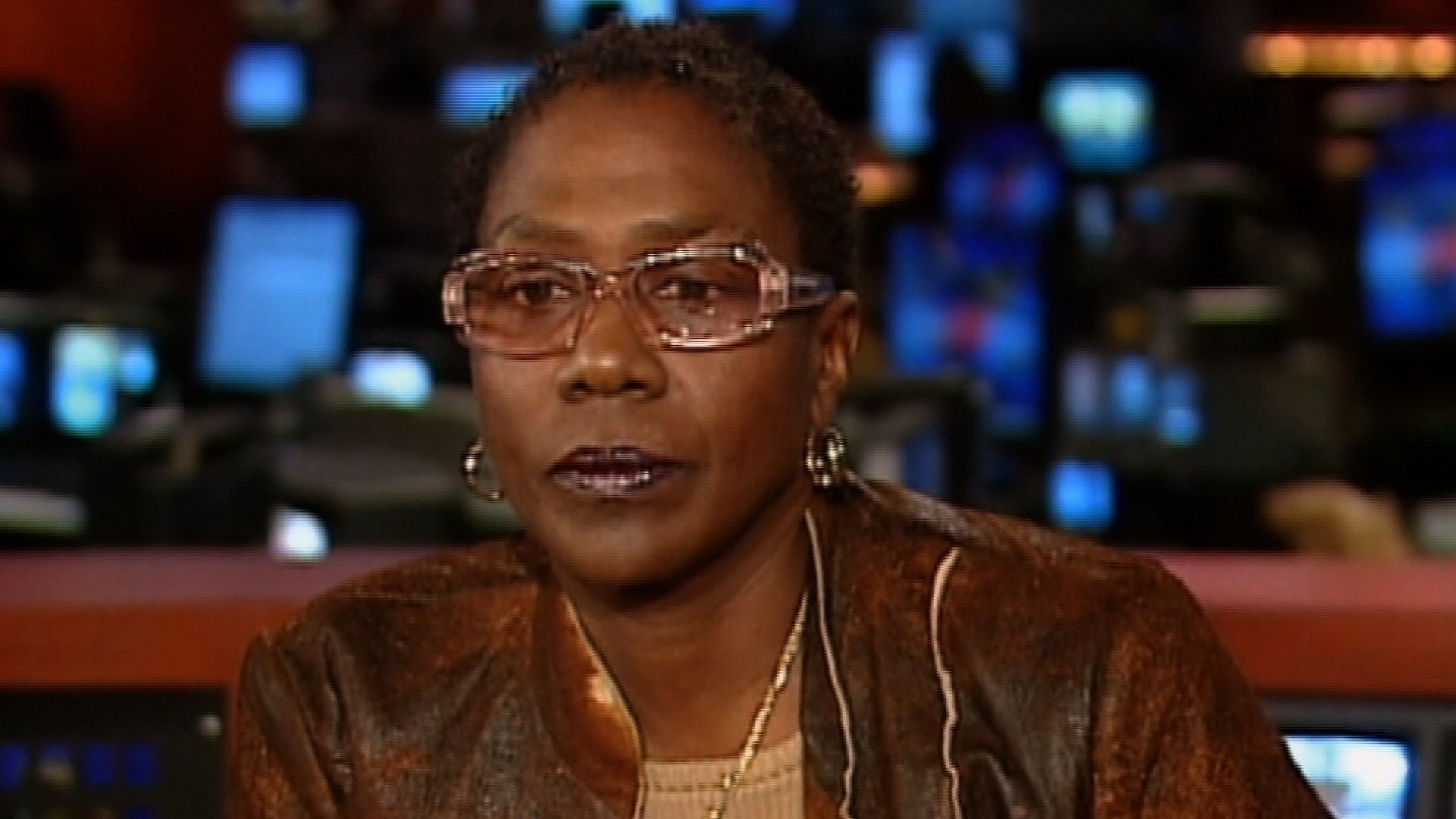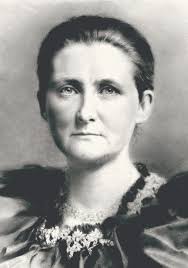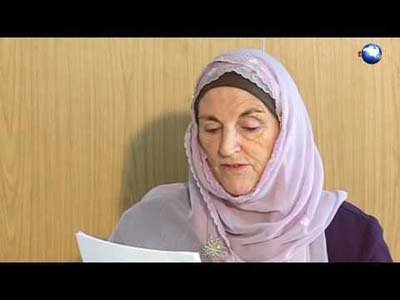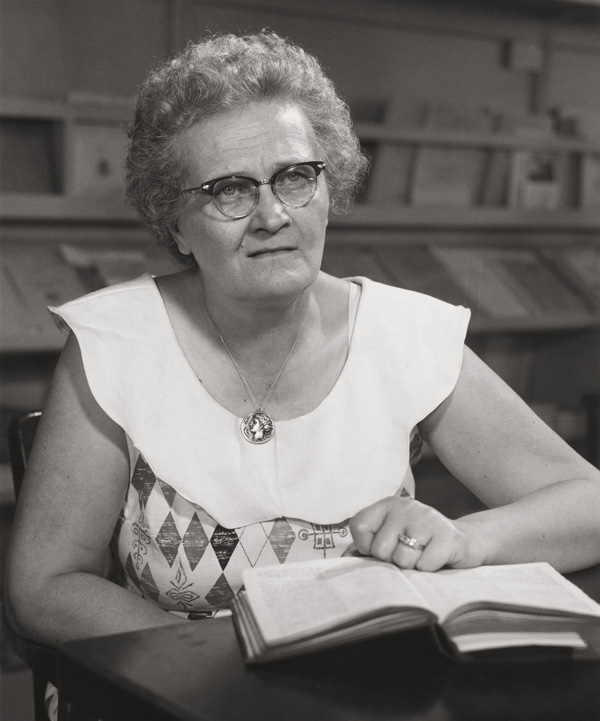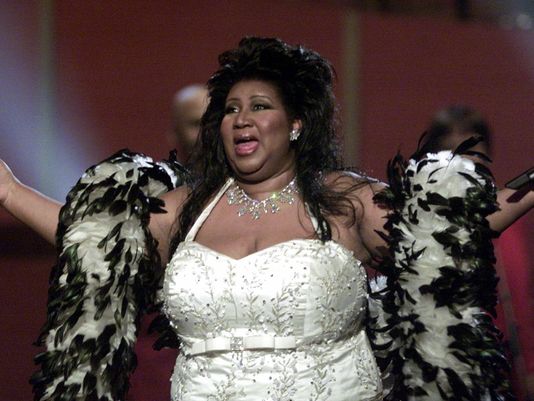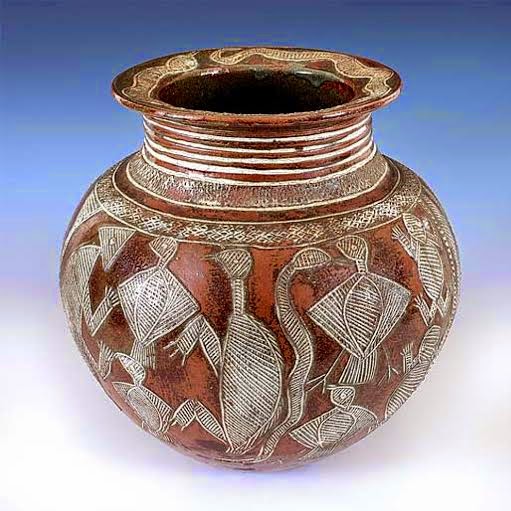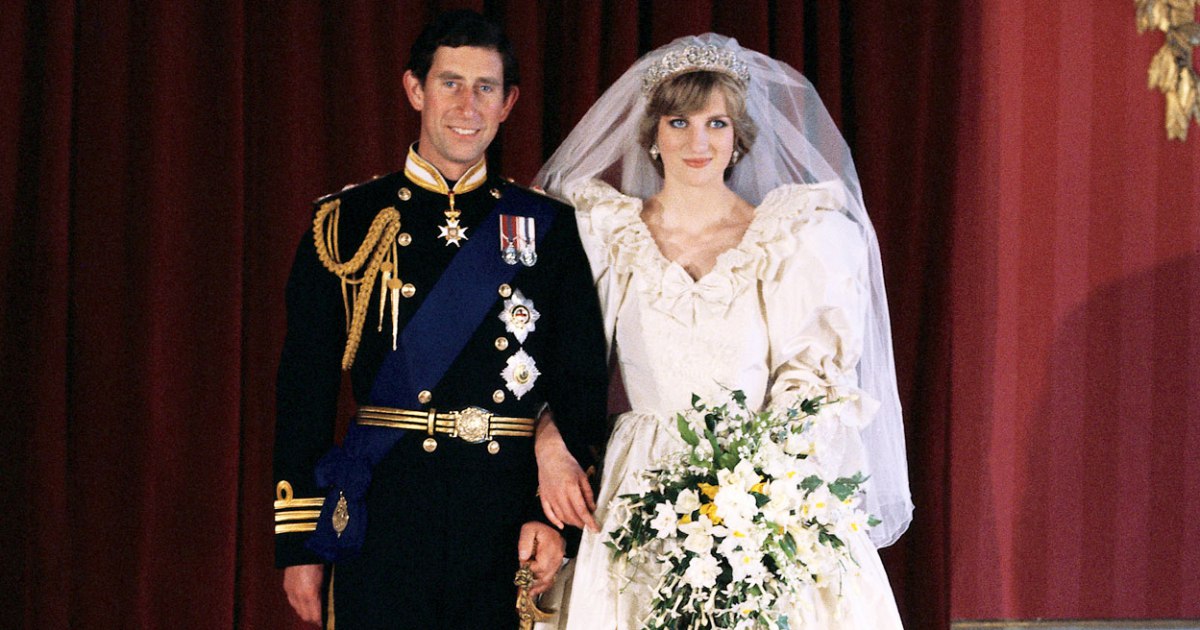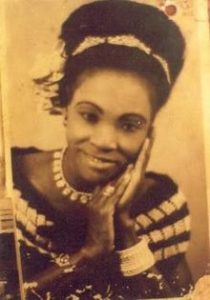
Born in the creek town of Cross Rivers State to Okoroafor Obiasulor and Inyang Eyo Aniemewue, she obtained her primary six certificate in 1934, and her to take up a job teaching in an elementary school after the death of her Father in the same year.
She got married to Dr. John Udo Ekpo a medical Doctor of the Ibibio tribe and moved to Aba. She got the opportunity to further her education on scholarship to what is now the Dublin Institute of Technology in Dublin Ireland and obtained a Diploma in Domestic Science. And on her return to Nigeria, she established a Domestic Science Sewing Institute in Aba.
Margaret Ekpo went on to become a nationally and internationally recognized Icon of Nigerian politics and a pioneer activist of women’s rights. Just like Gambo Sawaba, her remarkable political career started with the initial quest for the protection of women’s right, propagation of core values of justice, fairness and equity with some zeal for ensuring the advancement of the nation. Chief (Mrs.) Margaret Ekpo was a renowned social mobiliser and pioneering woman politician in the first republic who was deeply into political activities of women liberation with the awesome capability to rally women beyond notions of ethnic solidarity.
Making strong alliances with women like Mrs. Funmilayo Ransome Kuti, Janet Mokelu and Hajiya Gambo Sawaba, Ekpo became a living legend in political determination and social mobilization with her rise in the quest for socialization of women role into that of helpmates rather than appendages to the career of their male counterparts.
Joining the National Council Of Nigerian Citizens, formerly the National Council of Nigeria and the Cameroun’s (NCNC) led by Dr. Nnamdi Azikiwe, the first President of Nigeria, Ekpo had then became a contending factor in Nigeria politics. She was a Nigerian representative (Inter-Parliamentary Union Conference) in 1964, Nigeria representative (World Women’s International Domestic Federation Conference) in 1963, member of parliament Government of Nigeria as from 1960 – 1966, women’s interest representative (Nigerian Constitutional Conference in 1960, and a delegate at the Nigerian Constitutional Conference in 1959. She was the women representative in the Eastern House of Chiefs Nigeria 1957 between the years of 1948-1966.
Margaret Ekpo’s first encounter with politics was in 1945 when she began to attend meetings on behalf of her Husband who is a civil servant and thus cannot attend such meetings. Such meetings were organized to discuss the discriminatory practices of the colonial administration and to fight cultural and racial imbalances in administrative promotions.
She later on went to attend a political rally and was the only woman to attend the rally which saw fiery speeches from Nnamdi Azikwe, Mbonu Ojike, and Herbert Macaulay.
By the end of the decade she had organized a Market Women Association in Aba to unionize market women in the city. She used the Association to promote women solidarity as a platform to fight for the economic and political rights of women and their protection.
Her awareness of growing movement of civil rights for women around the world prodded her to demand same for Nigerian women and to fight discrimination and oppressive political and civil role colonialism played in the subjugation of women.
She later joined the decolonization leading National Council of Nigeria and the Cameroons (NCNC) as a platform to represent a marginalized group. In the 1950s, she teamed up with Funmilayo Ransome Kuti to protest the brutal killings of at the Enugu Coal Mine (the victims were leaders protesting colonial practices at the mine).
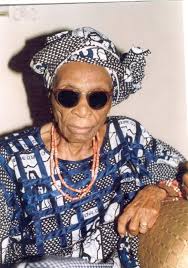
In 1953, Ekpo was nominated by the NGNC to the regional House of Chiefs and in 1954, she established the Aba Township Women Association. As the leader of the new market group, she was able to garner the trust of a large number of women in the township and turn it into a political pressure group. By 1955, Women in Aba had outnumbered men voters in a city wide election.
Margareth Ekpo won a seat to the Eastern Regional House of Assembly in 1961 a position that allowed her to fight for issues affecting women at that time. And there were also issues on the progress of women in the economy in 1954.
She established the Aba political matters especially in the areas of transportation around major roads leading to markets and rural transportation in general.
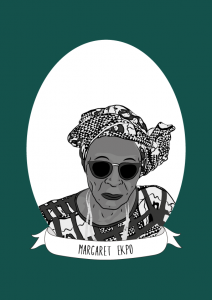
An airport in Calabar was name after her in 2001.


